Meet Chris Callison-Burch, MSE-AI Online Program Director
Chris Callison-Burch has been working in artificial intelligence for more than 20 years and is a leading researcher in the field. But when he got early access to a beta version of ChatGPT in 2021, even he was surprised by what OpenAI’s generative AI platform could do.
“I was astonished by the capabilities of the technology,” says Callison-Burch, an associate professor of computer and information science at Penn Engineering. “I was so impressed that I negotiated a contract with OpenAI to get access to it for all 250 students who were taking my AI class at the time.”
At the same time, he was quick to see the potential pitfalls of the technology, including the possibility of massive job losses due to automation. “There are huge risks to AI: everything from disseminating misinformation to political influence campaigns to spear-phishing attacks,” he says. “We need to be clear-eyed about what’s happening and guide the technology so that it’s beneficial for all of society.”
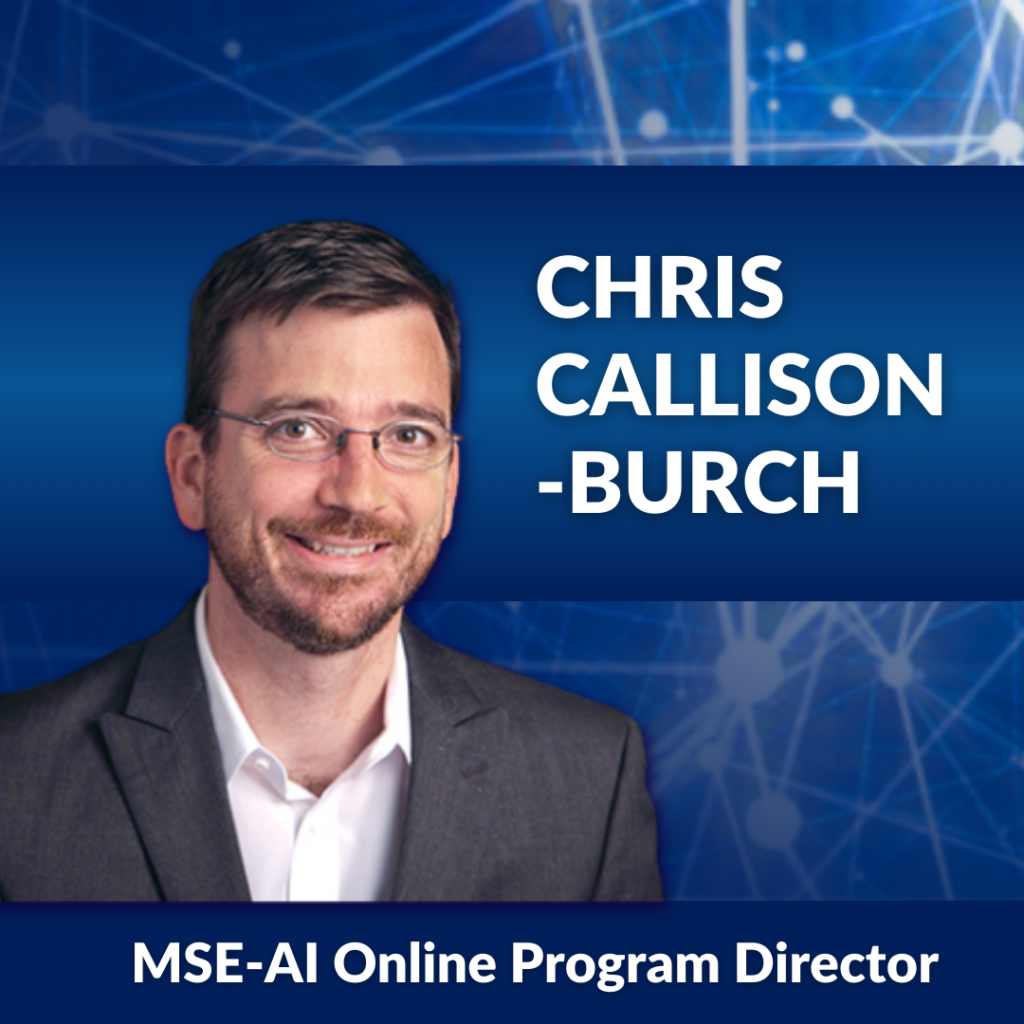
Widely regarded as an expert on AI, Callison-Burch frequently speaks about the topic on media outlets such as CNN, Fox News and Yahoo Finance. In May 2023, he testified before a U.S. House of Representatives subcommittee about AI and copyright law. “It is crucial that we carefully consider and draft legislation that simultaneously encourages innovation and guards against potential negative impacts on society,” he told the committee.
Now, Callison-Burch is leveraging his expertise to head up Penn Engineering Online’s newest graduate program, THE RAJ AND NEERA SINGH Program in Artificial Intelligence: Online Master of Science in Engineering in AI. Offered entirely online, the MSE-AI Online program is designed for applicants who have an undergraduate degree in computer science, computer engineering or an equivalent degree and want to dive deeper into the field of artificial intelligence.
“The goal of this program is to give people the fundamental skills that they’ll need to understand contemporary topics in artificial intelligence as well as the history of AI,” he notes.
“At the same time, we hope to mint a whole new generation of engineers who can ensure that this technology is deployed in a way that’s safe and ethical and doesn’t have a disruptive impact on society and democracy.”
The program will train engineers in everything from machine learning and natural language processing to statistical modeling and AI infrastructure. An ethics course will ensure that graduates are prepared to mitigate AI’s risks to society.
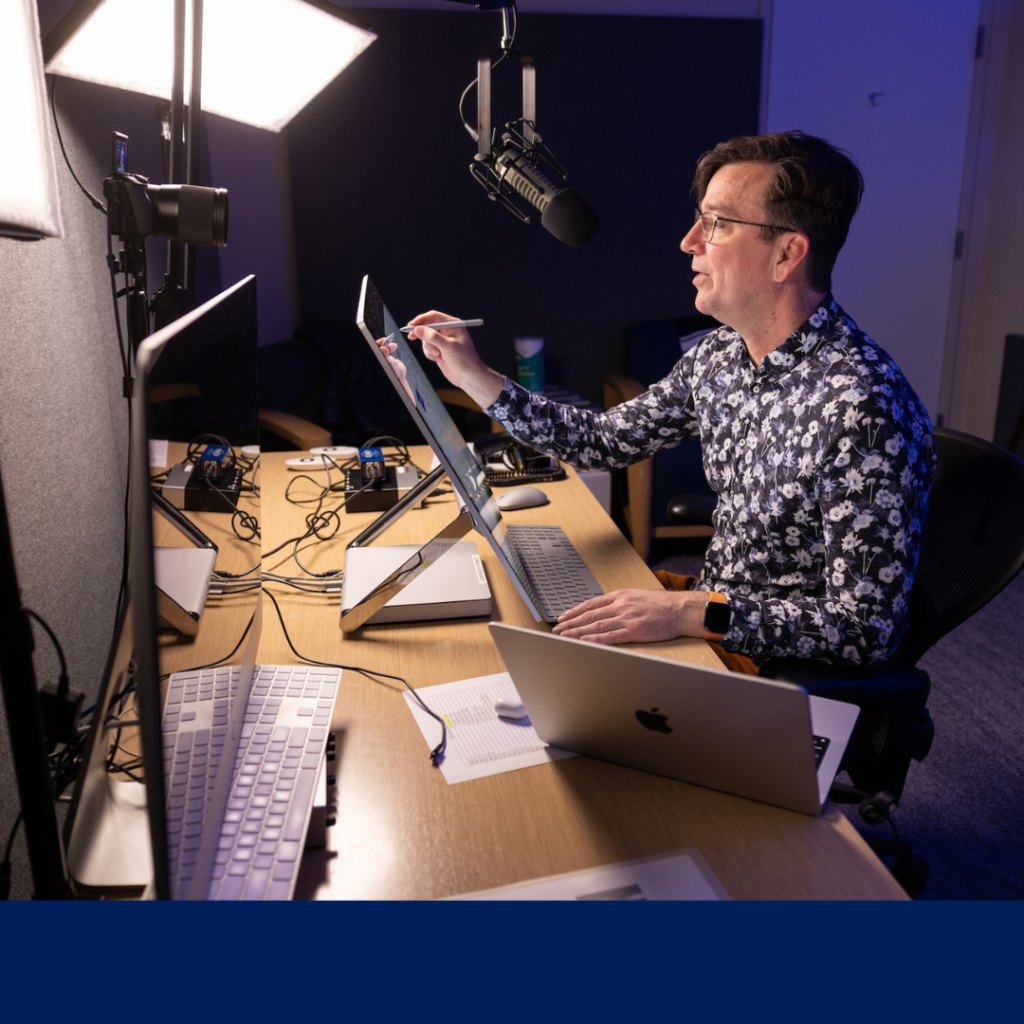
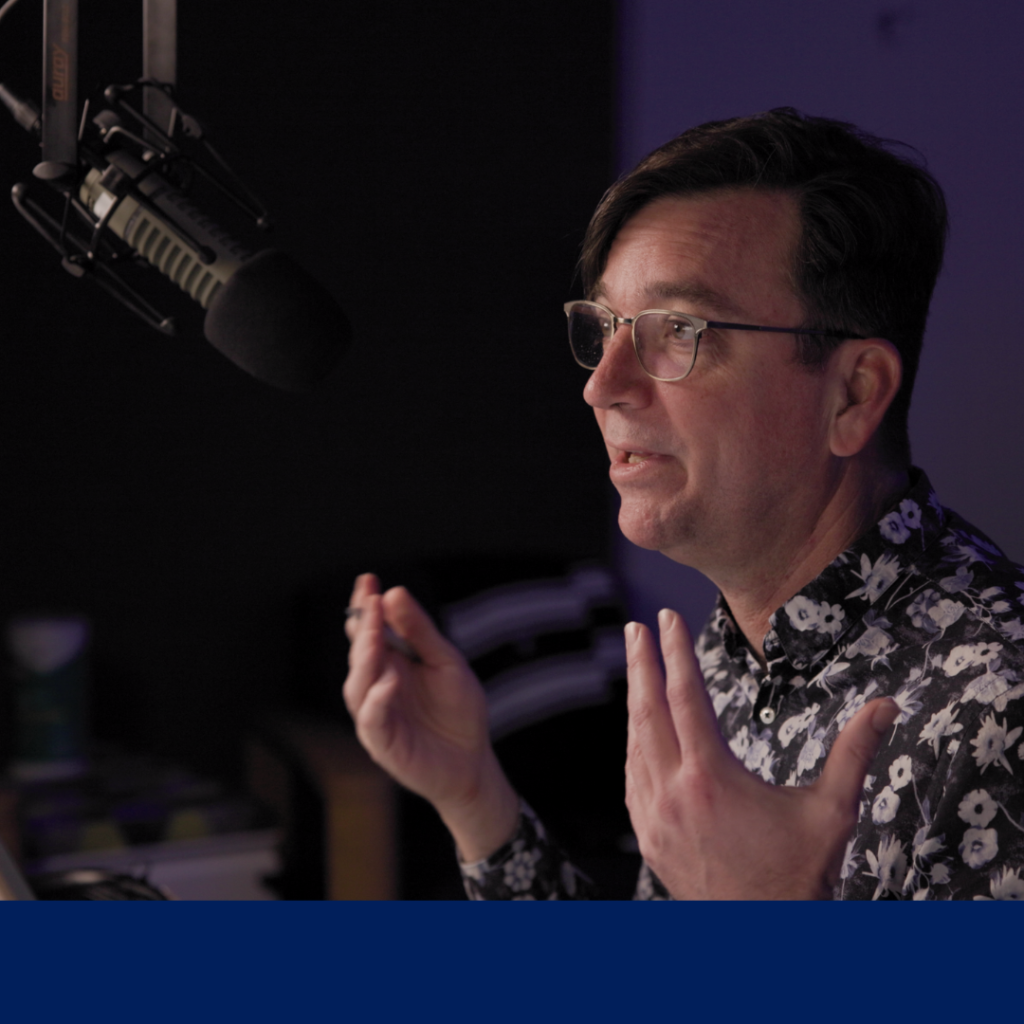
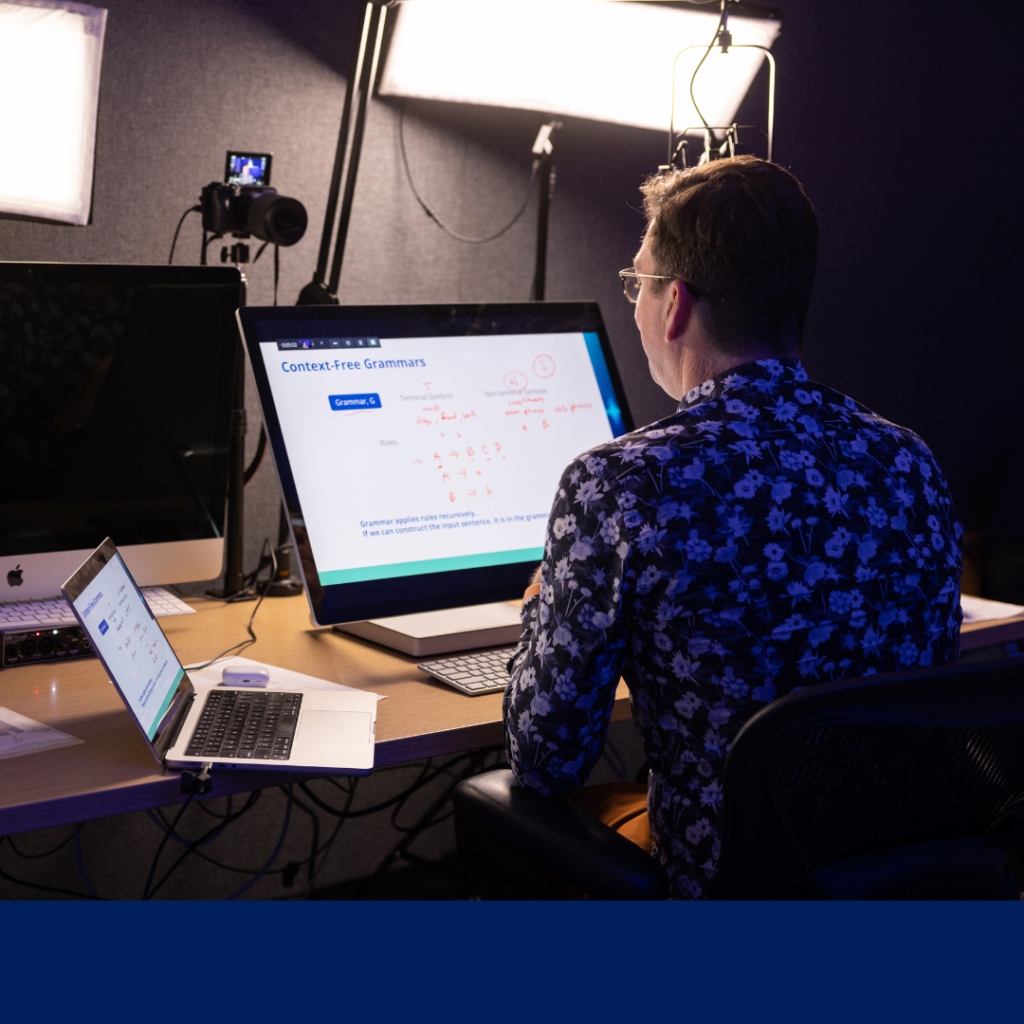
Professor Callison-Burch in production for a Penn Engineering Online course.
The author of more than 100 publications, Callison-Burch is best known for his work on natural language processing. His current research focuses on applications of large language models to long-standing challenges in artificial intelligence.
In one recent peer-reviewed paper, he collaborated with two students to prove that tech users can be trained to detect the difference between AI-generated and human-written text. For another project, he and colleagues created an AI tool that uses everyday language to generate virtual 3D spaces. Called Holodeck in a nod to Star Trek, the system paves the way for robots that can navigate through real-world environments.
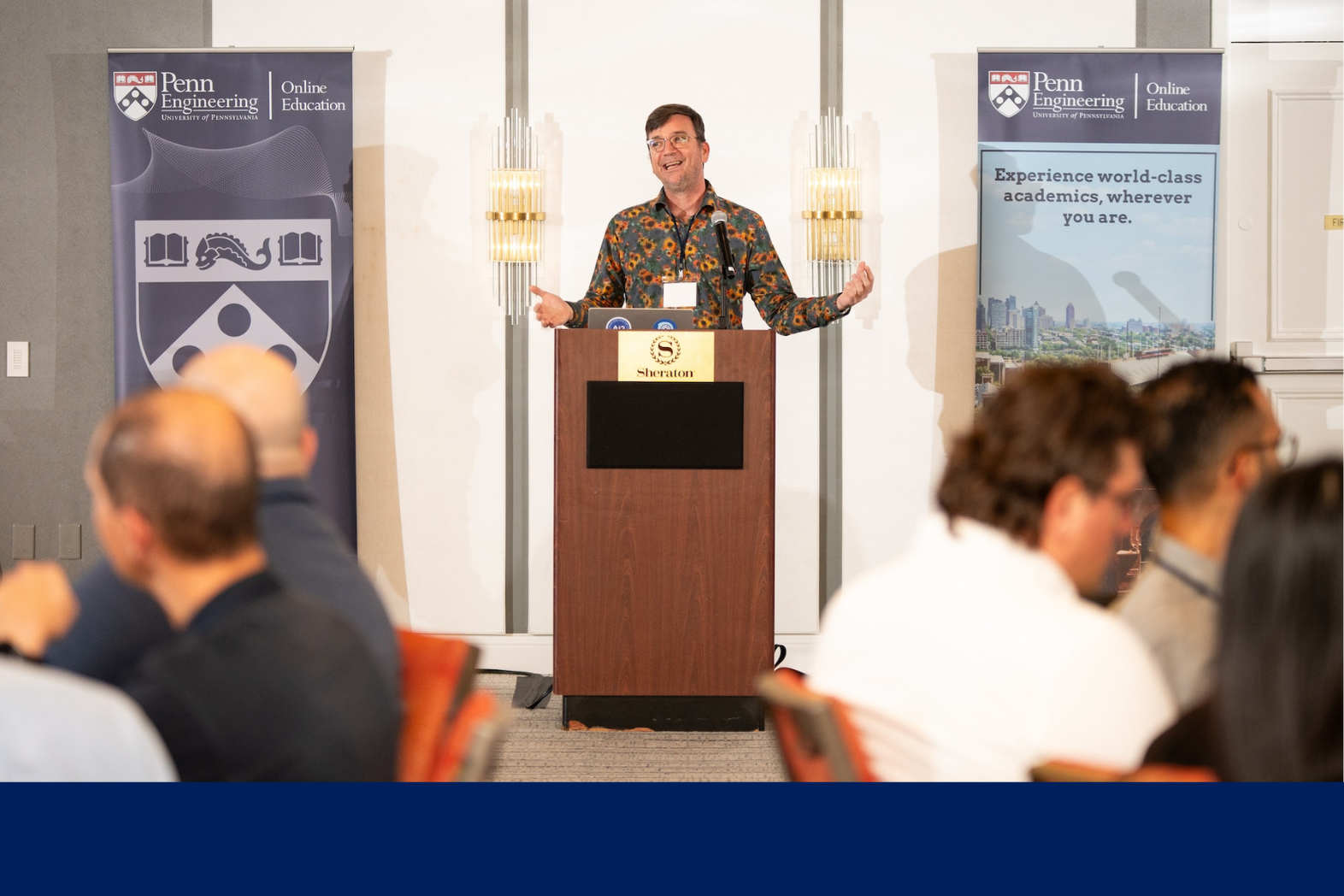
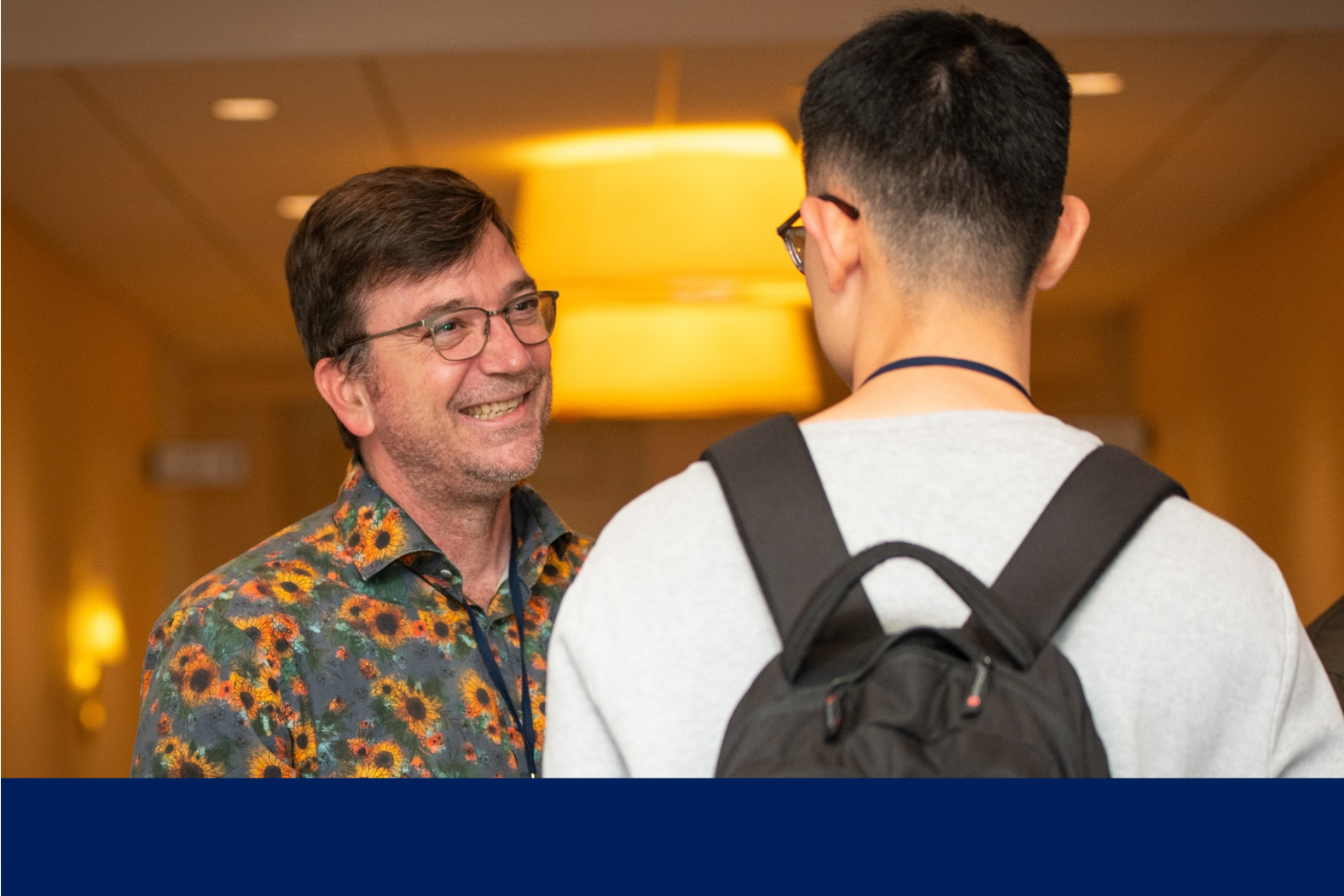
Professor Callison-Burch Penn Engineering Online’s Fall Fest in October 2023.
Callison-Burch has received faculty research awards from Google, Microsoft, Amazon and Facebook, as well as funding from DARPA, IARPA and the NSF. He was a visiting researcher at Google in 2019 and 2020. At Penn Engineering Online, he’s looking forward to shaping the next generation of thought leaders in AI.
“This is an incredibly exciting time, and I’m thrilled that the university is undertaking this initiative,” he says. “Penn is extremely well placed to deliver an awesome education in this area, and I can’t wait to see what the future brings.”
Learn more about Penn Engineering’s new MSE-AI Online degree program HERE.
Watch a recording of an MSE-AI Online webinar with Professor Callison-Burch HERE.
